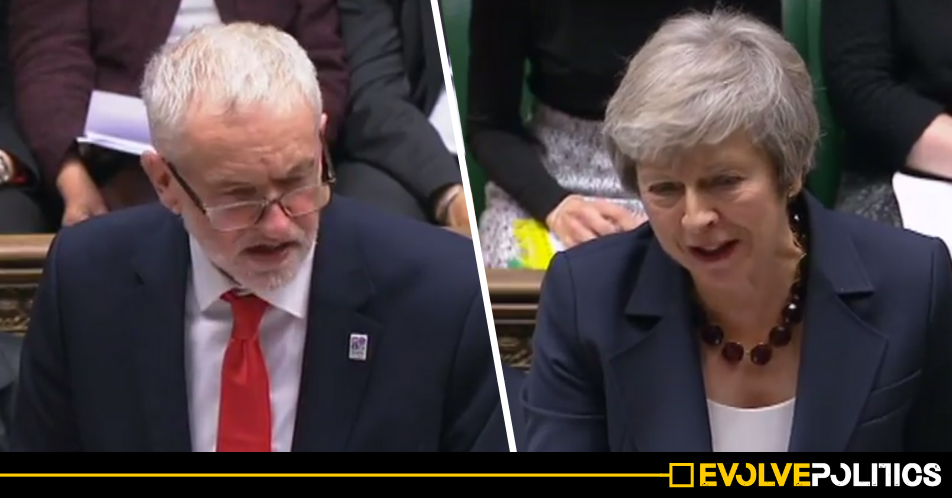Following the DUP’s decision to break their Confidence and Supply agreement with the government yesterday, Theresa May’s increasingly desperate Tories have tonight been forced to accept every single Labour Party amendment to crucial Finance legislation – a situation which means that the UK government has “in effect collapsed” and extremely vulnerable to a Parliamentary Vote of No Confidence.
Labour’s Shadow Chancellor John McDonnell revealed this evening that, rather than face defeat on the crucial ‘confidence’ legislation, Theresa May’s Tories chose to simply accept every single Labour amendment.
McDonnell tweeted:
“Absolutely staggering. The Government has just accepted all Labour amendments to the Finance Bill because they couldn’t rely upon DUP to support them. Tories in office not in power. A government falling apart in front of us.”
Absolutely staggering. The Government has just accepted all Labour amendments to the Finance Bill because they couldn’t rely upon DUP to support them. Tories in office not in power. A government falling apart in front of us.
— John McDonnell MP (@johnmcdonnellMP) November 20, 2018
And the line from the Labour Whips’ Office was that the situation was now so dire for the government , that they had “in effect collapsed“:
The Government have in effect collapsed tonight. Now that the DUP have pulled their support, Theresa May can no longer guarantee defeating amendments to key confidence votes such as the Finance Bill. Theresa May is clinging to office but not in power.
— Labour Whips (@labourwhips) November 20, 2018
Votes in the House of Commons on crucial legislation – such as The Queen’s Speech, the Budget, Finance bills and others – are seen as ‘Confidence’ motions, meaning that if the government is defeated, they effectively lose their authority in the House of Commons.
Following the snap 2017 General Election, the Conservative Party lost their majority in Parliament, meaning they needed to obtain a ‘working majority’ of MPs in order to pass such legislation.
However, a year and a half after signing a Confidence and Supply agreement with the Tories, the DUP appear to have reneged on the deal, leaving Theresa May leading a minority government relying on opposition votes to pass crucial legislation.
Arlene Foster’s Northern Irish party have withdrawn support in protest at Theresa May’s proposed Brexit bill, which they say will risk splitting up the United Kingdom by treating Northern Ireland differently to the rest of the Union.
And now, with Theresa May looking increasingly unlikely to diverge from the deal she has negotiated, it remains extremely unlikely that the Confidence and Supply agreement will survive.
And, with no majority in the House of Commons, a minority government is extremely vulnerable to a vote of no confidence against them.
A Parliamentary vote of no confidence was last successfully used against the minority government of James Callaghan in 1979, which passed by just a single vote – 311 to 310.
There are similarities between 1979’s Parliamentary mathematics and today’s – albeit reversed from the Tories to Labour – and, if they cannot improve their image quickly and gain further support, the present day Tory government are at real risk of being ousted in a vote of no confidence by opposition parties.

